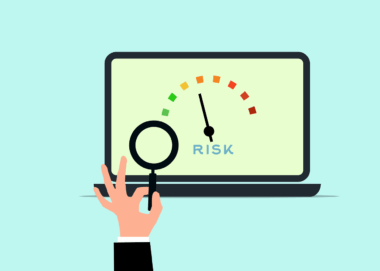The Role of Artificial Intelligence in Compliance Monitoring
The financial services sector is undergoing a significant transformation, thanks largely to the implementation of Artificial Intelligence (AI) in compliance monitoring. AI systems are increasingly employed to ensure adherence to regulatory standards and internal policies. This technological evolution enables organizations to examine vast amounts of data efficiently, mitigating the risks associated with non-compliance. The flexibility of AI allows for the integration of various compliance processes, improving overall efficiency. In addition, AI algorithms streamline reporting processes, generating accurate insights that assist compliance officers in making informed decisions. Furthermore, these systems perform deep learning, enhancing their ability to predict potential compliance breaches before they occur. The proactive approach of AI reduces the likelihood of costly penalties incurred from regulatory missteps. Companies that have embraced AI-powered compliance monitoring not only save on operational costs but also foster a culture of adherence throughout their organization. The shift towards intelligent compliance represents a profound improvement in safeguarding ethical standards, ultimately leading to a more transparent financial ecosystem. Thus, it is imperative that financial institutions prioritize the adoption of AI-driven compliance solutions to stay competitive and compliant in the rapidly evolving regulatory landscape.
As we delve deeper into AI’s impact in the compliance space, we can categorize its utility into various functions that improve compliance frameworks significantly. For instance, risk assessment is one area where AI excels, utilizing machine learning algorithms to rank potential compliance risks associated with different activities. By analyzing historical data, AI systems can accurately predict areas of concern, allowing compliance officers to allocate resources more effectively. Another function of AI involves automating routine compliance tasks, such as document verification and transaction monitoring. By reducing the manual workload, AI allows compliance professionals to focus on more strategic responsibilities. Additionally, AI-powered tools can provide insights into patterns of behavior, identifying anomalies that may indicate non-compliant activities. By flagging these discrepancies, businesses can respond swiftly and accurately. Furthermore, the adaptability of AI ensures that systems can evolve according to changes in regulations, ensuring ongoing compliance without additional manual inputs. As the regulatory landscape continues to shift, leveraging AI in this manner will empower organizations to navigate compliance challenges more efficiently, thereby enhancing their overall operational resilience and risk management strategies.
AI for Enhanced Surveillance in Financial Services
AI’s role extends beyond simple compliance into enhancing surveillance measures within financial services organizations. Surveillance systems utilizing AI can continuously monitor transactions and communications, identifying suspicious activity much faster than traditional methods. By employing techniques such as natural language processing and deep learning, these systems can analyze unstructured data, detecting patterns indicative of fraudulent behavior. Moreover, human oversight is not eliminated; rather, AI augments human capabilities by providing a comprehensive overview of potential issues. This proactive surveillance model helps in rapidly addressing compliance risks, minimizing potential liability. Furthermore, organizations can leverage AI tools to support real-time investigations. By sifting through large datasets instantly, businesses can gather evidence efficiently for compliance inquiries or audits. The integration of AI also allows for further customization of surveillance alerts, which can be tailored to specific regulatory requirements. As a result, these advancements enhance the precision and reliability of monitoring systems, ensuring they align with compliance mandates uniquely. Consequently, financial institutions stand to benefit greatly from deploying AI technologies within their surveillance operations, establishing safer environments for transactions and client interactions.
In order to ensure successful AI implementation in compliance monitoring, organizations must also address certain challenges that arise. One significant hurdle is data privacy. The utilization of AI typically requires access to sensitive customer data which raises concerns regarding compliance with privacy laws, such as GDPR. Organizations must develop robust data governance frameworks to ensure that they handle personal data responsibly while still complying with regulations. Another challenge is the transparency of AI algorithms. Understanding how AI systems generate specific compliance alerts can be complex; thus, organizations must work to demystify the AI processes and ensure accountability. This includes maintaining a balance between automation and human input, as complete reliance on AI can lead to oversight in judgment. Additionally, there must be continuous monitoring of AI systems to prevent biases from influencing data interpretation. Regular audits can ensure that AI tools operate fairly and transparently. By proactively addressing these concerns and fostering a culture of innovation, organizations can effectively leverage AI for compliance, ensuring that the technology serves as an asset rather than a liability. A collective commitment to ethical AI use will drive transformation in compliance practices.
AI and Regulatory Compliance Training
The role of AI in enhancing compliance monitoring is also evident in training programs designed for compliance professionals. AI-driven platforms can now provide personalized training modules, adapting content to meet the specific needs of individual employees. For instance, these platforms can analyze performance metrics and learning goals to create tailored learning experiences. Moreover, AI systems can assess real-time feedback, adjusting training methodology accordingly for maximum effectiveness. This level of customization ensures that employees remain engaged and more effectively retain critical compliance information. Furthermore, incorporating AI in training promotes a deeper understanding of the policies and regulations that govern financial transactions. With interactive simulations and guided learning, employees can experience real-life scenarios associated with compliance risks. The adaptability of AI learning systems means that as regulations evolve, so too will the training material, ensuring compliance officers are always well-prepared. Ultimately, AI enhances the capability and competency of staff, equipping them to handle compliance challenges proactively. By investing in AI-supported training, financial institutions can significantly improve their compliance culture, fostering awareness and vigilance within their organizations.
Furthermore, collaboration between compliance teams and AI developers is essential in maximizing the potential of AI technologies in compliance monitoring. Cross-functional teams can facilitate better communication, ensuring that AI systems are developed with compliance requirements in mind. This collaborative approach leads to the creation of more effective algorithms that can adequately address sector-specific compliance issues, resulting in systems tailored to meet unique organizational needs. Additionally, engaging with AI experts helps compliance teams to understand the underlying technology, enabling them to leverage the systems to their fullest potential. Such partnerships are not only beneficial for improving operational efficiency but also play a crucial role in bolstering compliance culture throughout the organization. By involving employees in the development process, organizations can also cultivate enthusiasm towards AI solutions and increase buy-in among staff. This collaborative and inclusive approach helps reduce resistance to change, breeding acceptance of AI-driven compliance measures. Consequently, improved relationships between compliance teams and AI developers will enhance the quality of compliance solutions, providing reliable tools that ultimately lead to greater organizational success.
The Future of AI in Compliance Monitoring
As we look towards the future, the integration of AI in compliance monitoring is expected to become even more comprehensive and sophisticated. Emerging technologies, such as blockchain and machine learning, will likely provide even greater accuracy and transparency in compliance efforts. Blockchain technology can further enhance data integrity, providing a secure method of recording compliance-related transactions in an immutable ledger. As AI technologies continue to evolve, organizations will be able to automate more complex compliance processes, moving towards a fully autonomous compliance monitoring system. This transition will not only improve efficiency but also allow compliance professionals to dedicate their energies towards higher-level strategic initiatives that drive growth. Moreover, as regulatory environments become more complex, AI systems will be pivotal in adapting to these changes, ensuring that organizations remain compliant amidst evolving guidelines. The journey of integrating AI in compliance monitoring is filled with promise; however, it is essential for companies to approach this transition with careful consideration and a commitment to ethical AI usage. By doing so, they can foster a forward-thinking compliance culture that champions accountability and integrity in the ever-changing financial landscape.
In conclusion, embracing AI in compliance monitoring is not merely a trend; it is an essential step for financial institutions striving for resilience and ethical practices. Organizations that prioritize technological integration within compliance frameworks will not only comply with existing regulations but also anticipate future changes effectively. Investing in AI technologies enhances compliance capacities, allowing institutions to navigate complex regulations seamlessly. Furthermore, the agile nature of AI provides organizations with the tools necessary to preemptively address compliance issues, cultivating a proactive compliance culture. Presently, organizations must prioritize employee training and engagement concerning AI mechanisms, boosting familiarity and confidence in these innovative tools. By fostering collaborations with AI developers, organizations can ensure that their systems are both effective and responsive to compliance needs. The journey towards AI-driven compliance is gradual; however, the long-term benefits are substantial. Compliance monitoring will evolve into a more dynamic and proactive function within organizations. As we advance, financial institutions that embrace these changes will emerge as leaders in compliance and regulatory practices, equipped to handle both current challenges and future demands of the financial sector.





